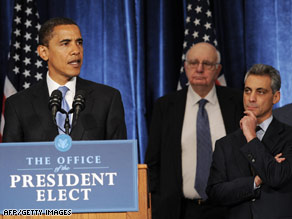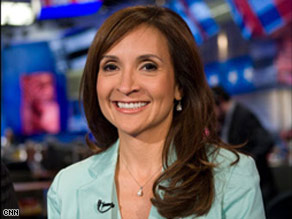President-elect Barack Obama may stand for change, but he's turned to some powerful Washington insiders to help him staff the nation's top communications regulator, the Federal Communications Commission.
Picking the FCC chairman may not be the top priority for the Obama transition team, which is focused on naming a Treasury secretary tasked with ending the economic crisis, and appointing foreign policy leaders who will need to navigate two wars and other pressing diplomatic issues. Still, the Obama Administration will need to put some emphasis on finding a deft leader to head up the agency responsible for regulating TV, radio, and other telecommunications services. The new Administration is expected to give greater prominence to emerging providers of communications products and services, such as Google (GOOG)—a departure from the Bush Administration, which has tended to favor traditional providers such as AT&T (T).
In making the choice, the Obama team is considering appointing the first African American woman to the post, while it also fields recommendations from advisers who served in the FCC under President Bill Clinton. Heading up the selection process is Henry Rivera, partner at Washington law firm Wiley Rein. Headed by former FCC Chairman Richard Wiley, Wiley Rein has represented such companies as AT&T, Verizon Communications (VZ), Viacom (VIA), Motorola (MOT), and Sirius Satellite Radio (SIRI).
Short List of FCC Candidates
Rivera was the first Hispanic FCC commissioner, serving from 1981 to 1985, and is considered an advocate for local telcos, wireless companies, and cable TV providers. "Henry is a wise man, a bipartisan with lots of experience," says John Muleta, former head of the FCC's Wireless Telecommunications Bureau and now CEO of M2Z, an emerging wireless broadband provider.
Rivera, who is not interested in the position, has drawn up a short list of candidates that includes two African American women, according to a person familiar with Rivera's thinking. One is Julia Johnson, a Florida consultant who chairs Video Access Alliance, an advocacy and advisory group for independent, emerging, and minority networks and Internet content providers. Johnson is also on the board of MasTec (MTZ), a contractor that designs and builds telephone, broadband, electric, and other networks. She didn't return a call or an e-mail. Rivera was not available for an interview.
Another possibility: Mignon Clyburn, who has been a commissioner for the Public Service Commission of South Carolina since 1998. After earning a bachelor's degree in banking finance and economics from the University of South Carolina, she worked as a newspaper editor and was general manager and publisher for the local Coastal Times. Clyburn is a daughter of House Majority Whip Jim Clyburn, South Carolina's most prominent black politician. Clyburn declined to comment for this story.
Obama's team is also weighing recommendations from former FCC Chairmen Bill Kennard and Reed Hundt, both of whom advised the Obama campaign on telecommunications-related issues.
'Business' 카테고리의 다른 글
| Coffee Yes, Starbucks No (0) | 2008.11.11 |
|---|---|
| Obama team ponders what to do with Guantanamo inmates (0) | 2008.11.11 |
| DHL to Halt Express Deliveries in the U.S. (0) | 2008.11.11 |
| Sun's Flash of Hope (0) | 2008.11.11 |
| Fannie reports $29B loss in 3Q as defaults rise (0) | 2008.11.11 |
 '
'
















